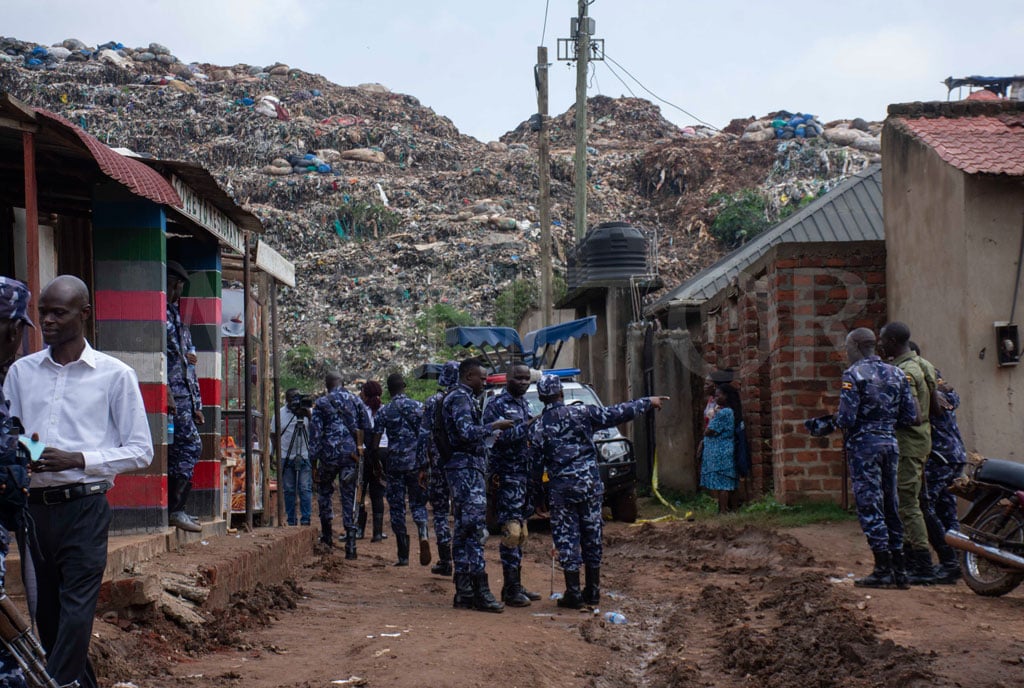Prime
Observers give mixed reactions on election

European Union head of delegation Atilio Pacifici (left) and the head of East African Community election observer mission, Domitien Ndayizeye, at the National Tally Centre in Kyambogo, Kampala, on Friday. PHOTO/DAVID LUBOWA.
What you need to know:
- The EAC mission urged government to review the performance of security forces in the electoral processes and address the issues, which may have triggered use of force and accusations of bias against Opposition parties.
As the Electoral Commission (EC) declared President Museveni winner of Thursday’s presidential elections with 58.64 per cent of the total valid votes cast, the home of his closest challenger Robert Kyagulanyi, aka Bobi Wine, who got 34.83 per cent of the votes, was cordoned off by security forces.
The siege on Mr Kyagulanyi’s home, which security forces said is for his own safety, is a continuation of what the musician-turned politician has endured over the last two months of the election campaign period.
Several election observer missions admitted at the weekend that they had been told about the continued challenges faced by the Opposition since presidential nominations last November. They, however, noted that they could only speak about what they witnessed and not heard.
“We will not pretend to speak about things we did not see and observed. My grandfather used to tell us that you must take an oath for things you have seen and observed,” said Mr Samuel Azu’u Forkan, the head of the African Union election observer mission.
Mr Forkan, the Inter-Governmental Authority on Development mission (Igad) and regional bloc, East African Community missions, all said they had only observed voting exercise, which they indicated was largely peaceful, and part of tallying which they said was largely uninterrupted.
The AU mission said: “Generally there was a peaceful environment and a high turnout of youth and women.”
The head of the Igad mission, Mr Siraj Fegessa, in the assessment report issued on Saturday evening, raised concern about the nationwide Internet blackout which, he said, affected coordination of their mission. Igad also urged government to ensure that in future elections, biometric voter verification systems are in working condition prior to polling day.
Failure of biometric voter machines marred last Thursday’s voting for presidential and parliamentary candidates. The gadgets were flown into the country only a week to the polls.
The EAC observer mission led by former Burundian President Domitien Ndayizeye highlighted that “the violence witnessed during the campaign was regrettable and do not augur well for democratic culture and promotion of tolerance of alternative views.”
The EAC mission urged government to review the performance of security forces in the electoral processes and address the issues, which may have triggered use of force and accusations of bias against Opposition parties.
The mission further appealed to the executive to “expedite investigations to hold accountable all who contributed to injuries and loss of lives during the campaign process.”
In the last two months of the campaigns, Opposition candidates Kyagulanyi of the National Unity Platform and Patrick Oboi Amuriat of the Forum for Democratic Change were routinely blocked from campaigning, teargased and arrested.
In November, protests broke out in Kampala and other districts following the arrest of Mr Kyagulanyi in Luuka District for allegedly violating public health regulations to control spread of Covid-19. More than 54 people were killed as security forces moved in to quell the protests.
Observer’s work
Election observer missions monitor polling activities, analyse situations in which voting is conducted, and, thereafter, provide an independent assessment of the elections, including recommendations.
The United States government did not dispatch a team to monitor the polls after the EC did not issue timely accreditation, while the European Union said all their previous recommendations from 2006 have not been implemented. They did not, therefore, send an observer team.




